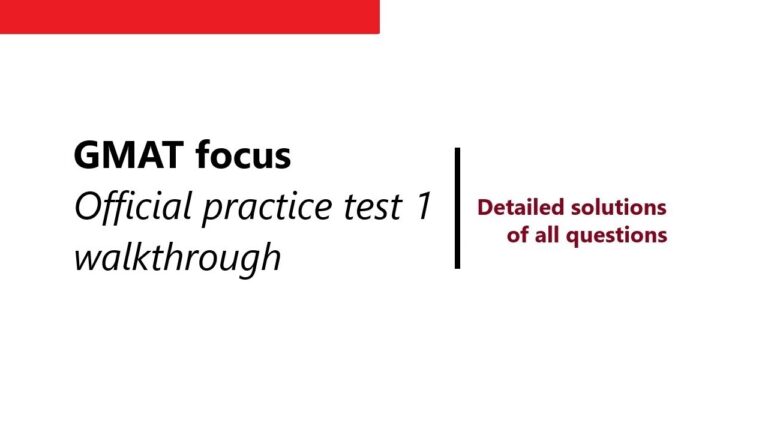Vocabulary for the GRE
In the GRE, vocabulary plays a very important role. The Verbal Reasoning section contains a wide range of words. These are some of the words that are most commonly used in native-English speaking countries. You will need a strong vocabulary to be able to answer questions on
- Reading comprehension – to be able to comprehend passages on a wide range of complex topics
- Text Completion and Sentence Equivalence – these questions directly test your vocabulary in context in the GRE are vocabulary based.
To complicate matters, there are so many GRE vocabulary lists available – some with 300 words while some with 1000. But the question is – How does one remember so many words? Is it possible to remember all the words and that too, in context?
A decent strategy
We can follow the following steps:
- Try to understand the roots of words instead of memorizing the words themselves – that way, you can try to make out a meaning of the word even if you aren’t familiar with that word.
- Simultaneously, learn the usage of words (and the parts of speech) – often that helps in eliminating options. Remember, GRE tests contextual meanings, not the meanings of stand-alone words. Thus, memorizing meanings without knowing the applications won’t help.
- Use of flashcards would help (it’s convenient) – use any of the ones available or make your own online! Write down the meaning and also a sentence using the word.
- Keep reading articles, stories, news editorials which use similar vocabulary – this is the way words stick. Keep using these words in day-to-day conversations if possible. Simply trying to cram words is not a very effective strategy
- Try to form phrases with words that are unfamiliar and use simple words in the phrases. For example, “the innocuous virus”, etc. Being able to relate to simple ideas help in memorizing faster.
- Write down unfamiliar (or difficult to remember) words. This helps to maintain a list of such words for quick revision. Remember to regularly revise this list and keep making sentences with these words.
- And most importantly, read aloud whenever you are trying to memorize words – hearing what you read helps your brain to process the data more efficiently, helping you to remember those.
Let’s look at some words
The following is a small list of words with which one can make a beginning (do try out the small quiz at the end of this list):
- abstain – verb – to restrain oneself for doing or enjoying something
- accentuate – verb – to emphasize
- adulterate – verb – to make (something) impure or weaker by adding something of inferior quality
- advocate – verb – publicly recommend or support
- anomaly – noun – something that is unusual or unexpected
- antipathy – noun – a strong feeling of dislike
- apathy – noun – lack of interest, enthusiasm, or concern
- assuage – verb – to make (an unpleasant feeling) less intense
- audacious – adj. – a willingness to take bold risks / adj. – showing a lack of respect
- banal – adj. – boring, unoriginal
- bolster – verb – to support or strengthen
- cacophony – noun – a harsh, unpleasant mixture of sounds
- capricious – adj. – given to sudden changes of mood or behaviour
- corroborate – verb – to confirm or make more certain
- deride – verb – to express contempt for; ridicule
- desiccate – verb – remove the moisture from (something)
- dissonance – noun – a lack of harmony or agreement
- duplicity – noun – dishonesty, deceitfulness
- enervate – verb – cause (someone or something) to feel drained of energy; weaken
- engender – verb – to produce, cause, or give rise to (something)
- enigma – noun – a person or thing that is mysterious, puzzling, or difficult to understand
- ephemeral – adj. – lasting for a very short time
- equivocal – adj. – not easily understood or explained
- erudite – adj. – having or showing great knowledge
- eulogy – noun – a speech that praises someone, typically some who has recently died
- expatiate – verb – to describe in great detail
- fervid – adj. – intensely enthusiastic or passionate
- galvanize – verb – to shock, or to coat in iron
- garrulous – adj. – excessively talkative
- gullible – adj. – easily persuaded to believe something
- homogenous – adj. – of the same or similar kind
- ingenuous – adj. – innocent and unsuspecting
- intermediary – noun – one who mediates between parties
- laconic – adj. – using few words
- laudable – adj. – deserving praise and commendation
- lethargic – adj. – lacking energy
- loquacious – adj. – tending to talk a great deal
- lucid – adj. – very clear and easy to understand
- maladroitness – noun – lacking skill or intelligence
- malleable – adj. – easily influenced; pliable
- misanthrope – noun – a person who dislikes humankind
- mitigate – verb – make less severe, serious, or painful
- obdurate – adj. – stubbornly refusing to change one’s opinion
- olfactory – adj. – relating to scent
- omniscience – noun – possessing all knowledge
- opaque – adj. – not able to be seen through; not easily understood
- orthodox – adj. – conforms to tradition
- ostentation – noun – excessive display of wealth
- paradox – noun – a statement that contradicts itself but might be true
- partisanship – noun – bias in favour of one view
- pedant – noun – a person who makes an excessive display of learning
- philanthropic – adj. – seeking to promote the welfare of others
- placate – verb – to make (someone) less angry or hostile
- polemical – adj. – strongly critical
- pragmatic – adj. – dealing with the problems that exist in a reasonable and logical way instead of depending on theories
- precipitate – verb – to cause (something) to happen quickly or suddenly
- pre-eminence – noun – superiority, excellence
- prevaricate – verb – avoid telling the truth by not directly answering a question
- prodigal – adj. – wastefully extravagant
- propriety – noun – the state or quality of being correct or proper
- ubiquitous – adj. – appearing everywhere
- untenable – adj. – unable to defend
- vacillate – verb – to waver between different opinions or actions
- venality – noun – to be open to corruption
- venerate – verb – regard with great respect
- volatile – adj. – likely to change rapidly and unpredictably
- waver – verb – to go back and forth between choices or opinions
- zeal – noun – a strong feel of interest and enthusiasm that makes someone very eager or determined to do something
How is your vocabulary? Try this quiz and find out!
Have questions? Call us for a free consultation regarding your career moves, call us: +91 9433063089







